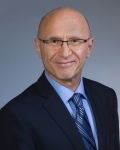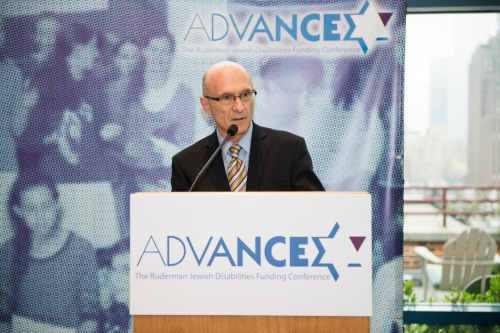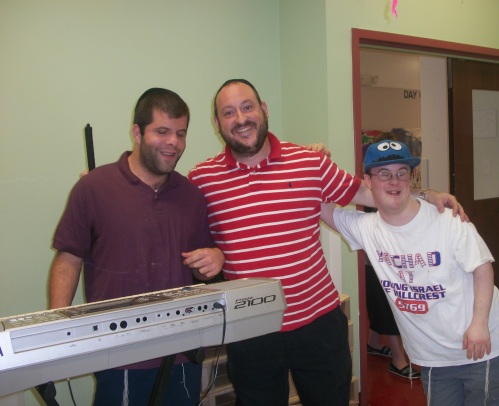 By: Alan Gill
By: Alan Gill
Meet Rachel and Dana.
These Israeli women, both in their late twenties, experienced a life passage recently that for many occurs at a much earlier age: they signed leases to move into their first apartments all on their own.
The twist?
Rachel and Dana both have severe physical disabilities that at one time might have consigned them for life to state institutions. But today, that is not their destiny.
Why? Because they were part of an innovative program that helps young Israeli adults with disabilities make the transition from institutions or from their parents homes to the larger community.
This achievement, a pinnacle in their lives, represents a tipping point of sorts, one I have seen throughout my travels around the world.
That’s because there is something extraordinary happening in Jewish communities and in Israel, something that demonstrates a real forward movement in how we embrace and create more inclusive communities for people with disabilities. And Rachel and Dana are just two examples of that change.
At the center – indeed the very heart– of this global transformation is the fact that inclusion is not just an easily tossed-about catchphrase in Jewish community life anymore. Today it is the driver.
For years now, we have talked about the importance of including Jews with disabilities in Jewish life or of helping people with disabilities live independently. In many ways these critically important slogans were the first step in achieving what is now a reality. But often we would stop short there, not doing enough to turn those words into action.
Today, however, we’re taking huge steps to ensure that Jewish life is available to all who seek it, creating opportunities for those who had faced barriers in the past, and providing unimpeded access to services and success and independence for people with disabilities. And in the process, we’ve begun to share and scale these models to create a “new normal” for our community.
So how did we get here?
In my opinion, by actualizing and bridging two great ideas: “Be the change you want to see in the world,” often attributed to Gandhi, and Herzl’s “If you will it, it is no dream.”
We have been blessed as a community to have standout leaders and activists who have pushed the envelope for the inclusion of people with disabilities across the global Jewish world. These advocates have embodied the very change they feel so passionately about.
Whether they themselves have a disability, have a friend or family member who has been impacted by a disability, or have been transformed by seeing the success achieved by a person with a disability when they are given the tools to thrive, these leaders are putting their professional reputations, philanthropic support, and personal talents where their mouths are. And to their credit they have not backed down.

I understand full well how that kind of passion and vision can impact organizations and communities. Since 2009, my organization JDC – together with our partners the Ruderman Family Foundation and the Government of Israel – has been working to ensure that Israel’s million plus citizens with disabilities have access to services, live independently, and that Israeli society becomes increasingly more inclusive of them.
We call this effort Israel Unlimited and to date, it has helped tens of thousands of Israelis with disabilities. Such transformative impact is the result of the leadership of my friend Jay Ruderman.
He has personified his passion, shuttling back and forth between the U.S. and his home in Israel to not just advocate for his vision of inclusion, but to fund life-changing initiatives, to award Jewish organizations and outlets that outshine with their achievements in this realm, and to push new models and ideas about inclusion, whether it be in the areas of employment or Jewish schooling.
And Jay is not alone. From the disabled director of a Center for Independent Living in Beersheva, a kindergarten teacher in Moscow bucking cultural fear of people with disabilities, or the rabbi of a suburban NJ synagogue welcoming families with children with disabilities into his congregation, these community members, and leaders in their own right, are boldly challenging the status quo – or simple ignorance – to ensure that people with disabilities are given their fair shot at the Jewish experience. They are the very change they desire in their communities.
When you have those kinds of inspiring leadership models, what follows next is action that changes lives. It wasn’t just enough, in JDC’s case, to walk the walk of inclusion. By embracing the change we wanted to make in lives of Israel’s citizens with disabilities and by then building out programs for them based on research, testing, and a better understanding of the services and opportunities they were lacking, we willed into being the very initiatives that would move the needle.
But we also did something else: we dreamed. For years now we have been running successful employment programs for an array of populations in Israel, most notably Haredim and Israeli Arabs. And we knew that Israelis with disabilities faced similar obstacles to the workforce – cultural misunderstanding of their abilities, lack of skills and training, and apprehension by employers.
We also knew from our previous successes that these obstacles were not true barriers if we marshaled resources and worked with our partners to ensure Israelis with disabilities had opportunities to work and thrive.
So just this summer, we launched RampUp, a program that trains pre-existing employment center staff to offer assistance and services to people with disabilities. Additionally, we included a variety of employers in RampUp’s roll-out, thereby creating a welcoming corporate culture for people with disabilities so that they are welcomed into the workforce and recognized for their skills and talents. With our initiative, Israelis with disabilities in five pilot cities in Northern Israel dream no longer about holding a job and living a life full of choice and dignity.
These achievements are about more than simple, pioneering efforts in the Jewish community to build inclusive, welcoming environments. They are about what is possible when you have the determination, unbridled passion, and tide of history on your side. You can make anything happen. And we have.
So let’s recommit to this task we have set forth for ourselves, whether we be Jewish professionals, philanthropists, or everyday community members. After all, our work is about strengthening Jewish people. And our shared dedication is to ensuring that people with disabilities – especially those in our global Jewish community – are right beside us and, in some cases, leading the way.
Together, with one voice, and many actions, we’re making it so. And future generations – like Rachel and Dana – will thank us.
Alan H. Gill is the CEO of the American Jewish Joint Distribution Committee (JDC). JDC works in more more than 70 countries and Israel to rescue Jews in danger, alleviate hunger and hardship, innovate Jewish life and create lasting Jewish connections, and provide a Jewish response to natural and man-made disasters. Follow them on Twitter for more info.











